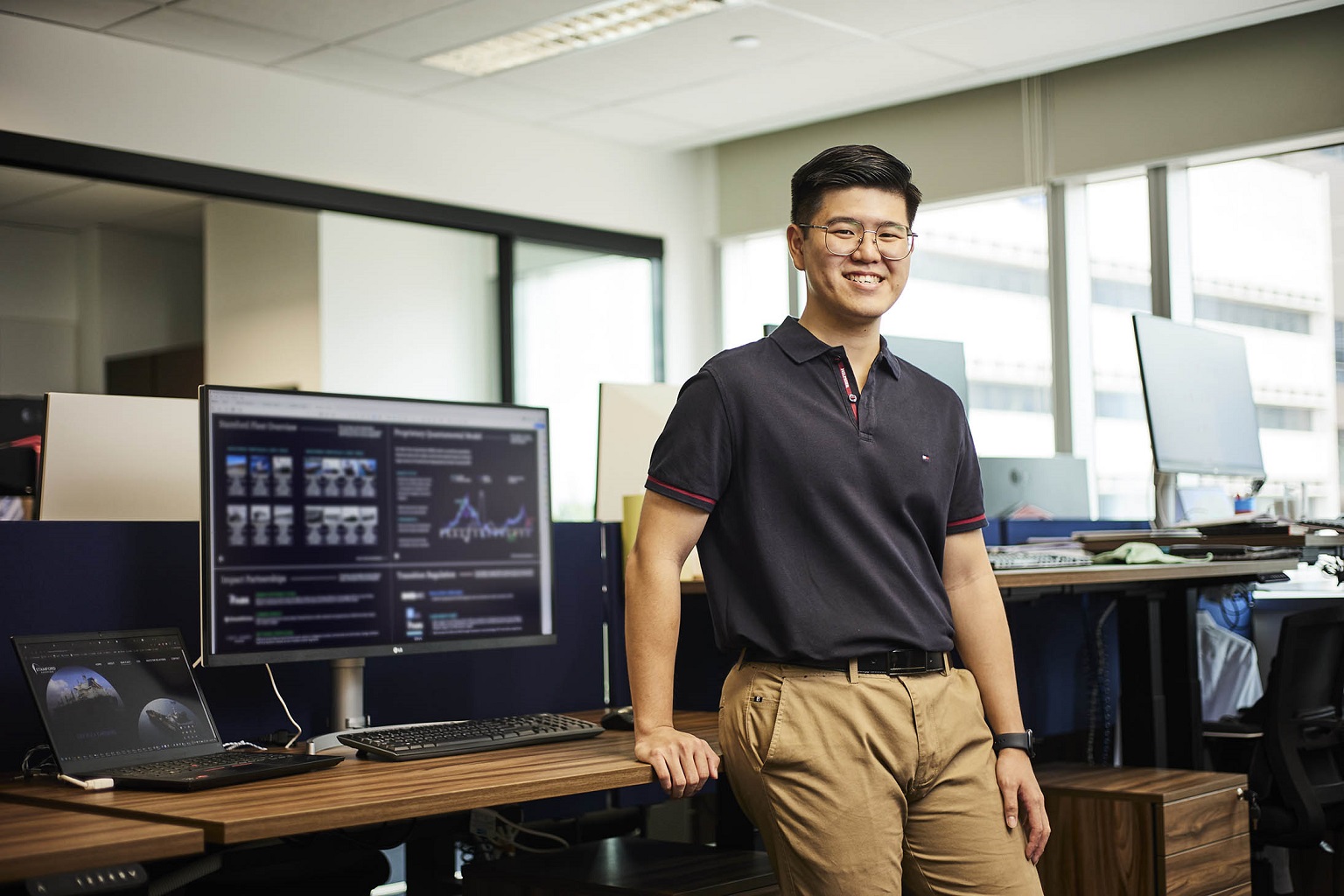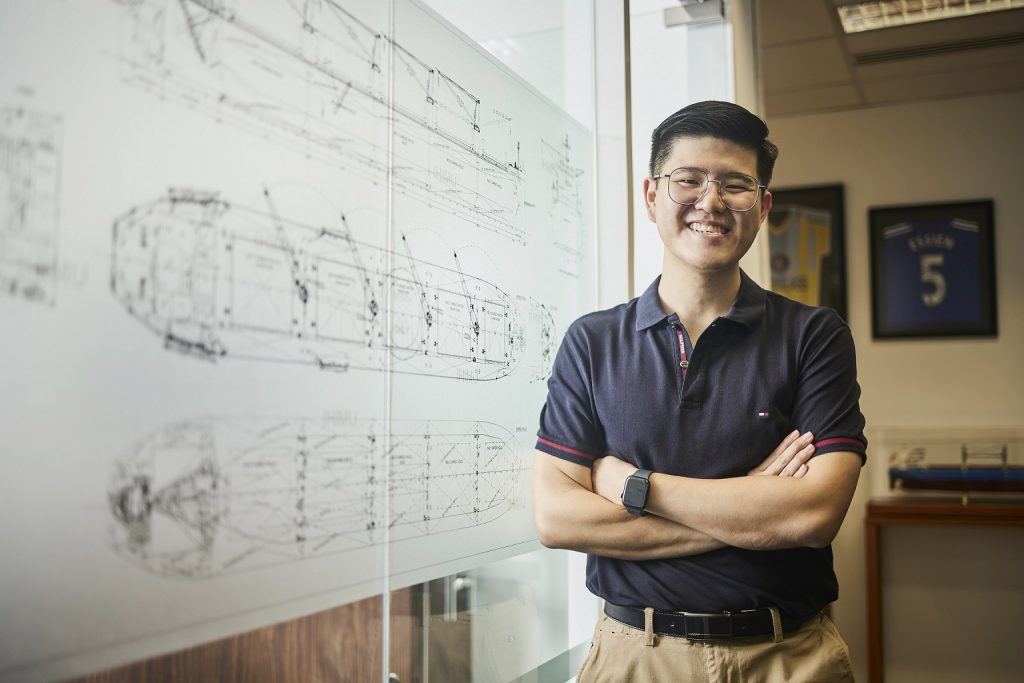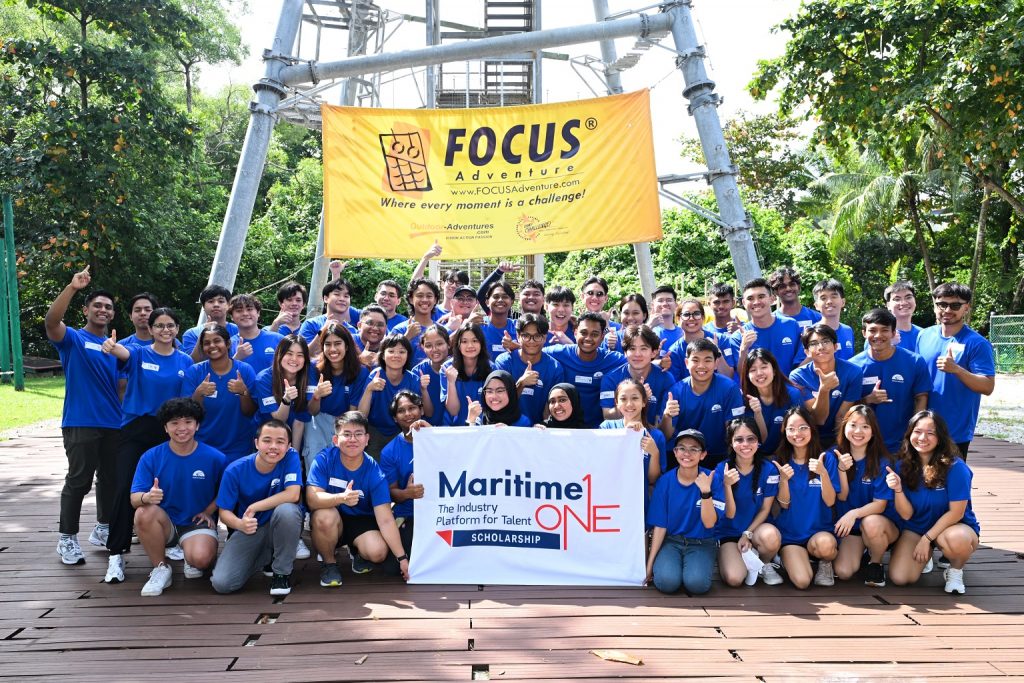
When he was not combing through seas of data, Lim Wan Loong occasionally found himself aboard a cargo ship with co-workers who are trained to inspect the seaworthiness of vessels.
On one unforgettable outing, he had to descend a rope ladder “like those dropped from a helicopter” down the side of the 40m-high vessel as seawater splashed against the hull.
“The ship was undergoing bunkering, which means refuelling, so I couldn’t leave through the bridge,” he recalls.
These moments, though rare during his six-month internship at Stamford Shipping last year, are a stark contrast to his usual work: analysing data and building a machine learning model (MLM) to drive smarter decisions for the Singapore-based company that owns vessels and manages a maritime investment fund.
Wan Loong, who is pursuing a double degree in accountancy & data science and artificial intelligence (AI) at Nanyang Technological University (NTU), had never expected to intern in the maritime industry, let alone apply modern data science applications to one of the world’s oldest – and most vital – industries.
“The shipping industry is a large ecosystem, with roles in areas such as marine insurance, port management and maritime finance,” says the 24-year-old.
“I never imagined that data science and AI could play such a crucial role in the shipping industry – but here I am, using machine learning to analyse market trends and even stepping on board to witness how other data-driven innovations are being translated into real-world operations.”

Wan Loong’s foray into the maritime industry began during his first internship with Stamford Shipping in 2023. The company was undergoing a digital transformation and needed someone to develop data-driven solutions – a role that aligned perfectly with his expertise in data science and AI.
While it felt like sailing into the unknown, he was game to take up the company’s challenge of building out their machine learning model that could analyse maritime market data and help the company make more informed investment decisions.
It was a daunting task, especially for someone with no prior knowledge of the industry, admits Wan Loong. When he first ran the model, it generated estimates of investment returns that were way off. Rather than being discouraged, the initial failure motivated him to immerse himself in maritime news and market reports to refine the model.
“I am not the kind of person who gives up easily,” he says.
With guidance from his supervisor Jason Poh, Stamford Shipping’s chief financial officer, Wan Loong learnt how market conditions and vessel prices impact profit and loss. He fed this newfound knowledge into the model, gradually improving its accuracy. “While it is not perfect, it can now produce accurate results when back-tested against historical data,” he says.
“The maritime sector is undergoing a green energy transition and embracing data-driven solutions. This is where I see a huge opportunity for someone like me to contribute.”
– Lim Wan Loong, recipient of the MaritimeONE Scholarship
Despite not being familiar with either finance or shipping, Wan Loong’s interest in the financial side of the maritime industry grew as he shadowed Mr Poh, learning about financial modelling and investment strategies. This industry “crash course” and the culture of mentorship at the company helped him thrive as he began to grasp the complexities of the industry and the dynamic nature of the maritime market.
He also gained a deeper appreciation for the industry’s significance for Singapore and the world. “More than 90 per cent of global goods and commodities trade is transported via sea,” he says. “The maritime sector is undergoing a green energy transition and embracing data-driven solutions. This is where I see a huge opportunity for someone like me to contribute.”

His dedication did not go unnoticed. Recognising his hard work and passion for the industry, Stamford Shipping awarded Wan Loong the prestigious MaritimeONE Scholarship from the Singapore Maritime Foundation. As part of the scholarship, the company covers the full cost of his undergraduate degree at NTU with a two-year bond, allowing him to pursue his professional aspirations without financial worry once he graduates this year.
Wan Loong’s decision to pursue a career in the maritime industry was solidified during the MaritimeONE Scholarship’s induction programme, where he networked with fellow scholars and industry professionals alike. He noticed that many scholars came from diverse fields of study, such as business analytics, law, supply chain management and engineering.
“Hearing their stories and exchanging ideas and views made me realise that I made the right choice for my career as well as my personal growth. It is a myth that you must have a background in the maritime industry to be a scholar here,” he says.
After all, the maritime industry needs diverse skill sets, especially as it embraces digitalisation and sustainability. For students considering new pathways and scholarships, he advises: “Don’t fear trying something new because you will never know where your voyage will lead unless you start sailing.”